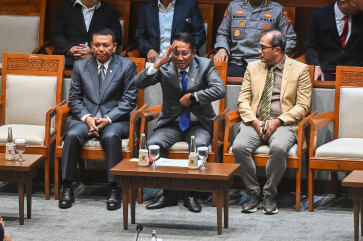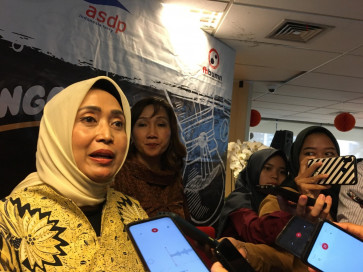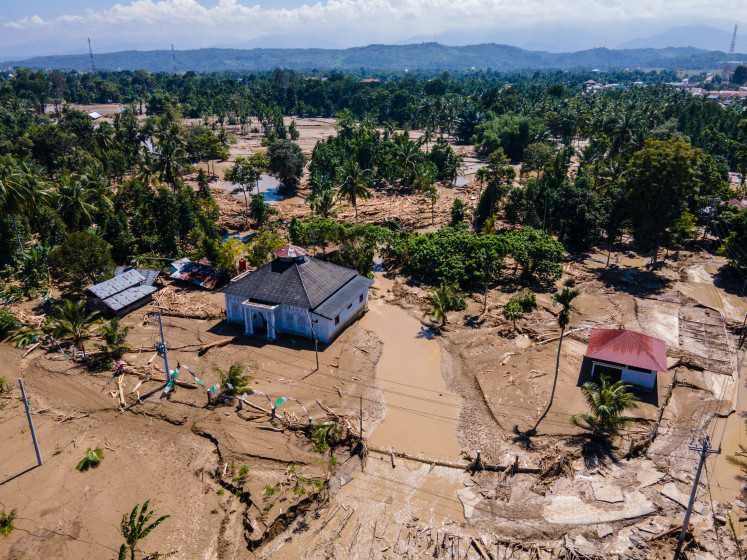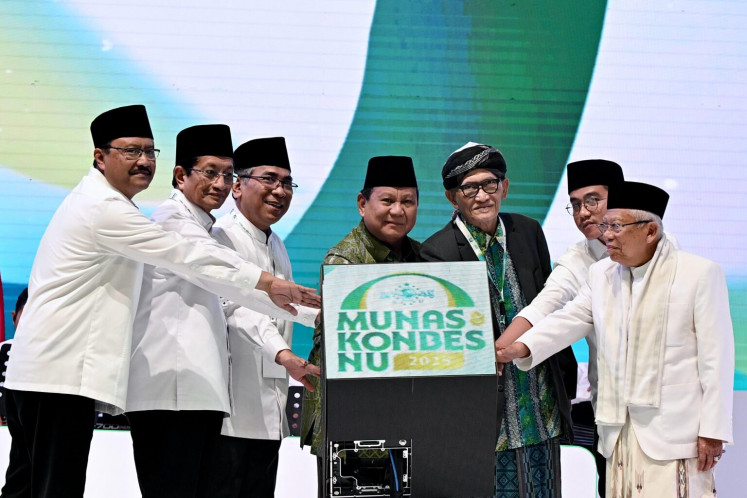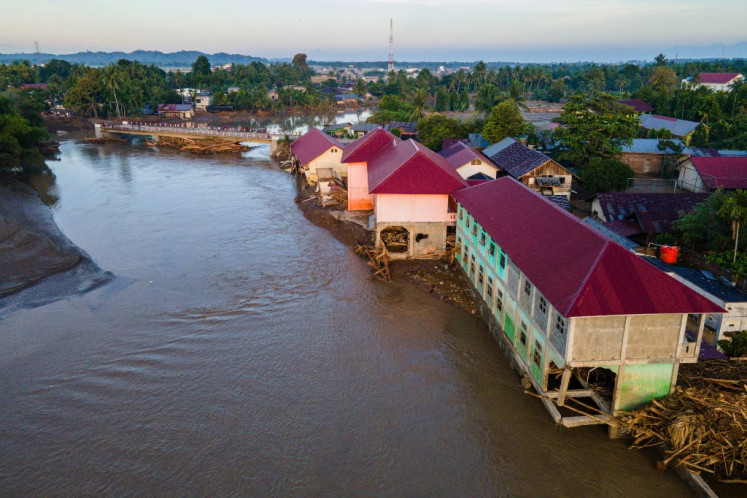Popular Reads
Top Results
Can't find what you're looking for?
View all search resultsPopular Reads
Top Results
Can't find what you're looking for?
View all search resultsCivil groups sue govt over Papua internet ban
Civil society groups have accused the government of misconduct in its decision to restrict internet access in restive Papua last year as part of efforts to contain the spread of hoaxes, according to a lawsuit filed at the Jakarta State Administrative Court (PTUN)
Change text size
Gift Premium Articles
to Anyone
C
ivil society groups have accused the government of misconduct in its decision to restrict internet access in restive Papua last year as part of efforts to contain the spread of hoaxes, according to a lawsuit filed at the Jakarta State Administrative Court (PTUN).
The Alliance of Independent Journalists (AJI) and the Southeast Asia Freedom of Expression Network (SAFEnet) is suing President Joko “Jokowi” Widodo and the Communications and Information Ministry over the internet access restriction imposed in Papua and West Papua between August and September last year.
Government officials argued that the move was taken to prevent the spread of hoaxes following incidents of racial abuse suffered by Papuan students in Surabaya, East Java, which had heightened tensions in Indonesia’s easternmost provinces.
In their lawsuit, which was read by presiding judge Nelvy Christin, the plaintiffs asked the court’s panel of justices to declare the defendants’ actions unlawful and to order the government to refrain from imposing similar measures in the future, as well as paying the plaintiff’s fees incurred by the case.
“The government’s policy to extend the internet blackout […] was an act against the law [carried out] by government bodies and/or government officials. The acts of the defendants were flawed in their authority, procedure and substance,” said Nelvy in Jakarta on Wednesday.
The government throttled back internet access in parts of Papua and West Papua on Aug. 19, 2019, between 1 p.m. and 8.30 p.m. local time, shortly after the incident in Surabaya, according to the lawsuit. It went on to impose a full blackout between Aug. 21 and Sept. 4, 2019, affecting 29 cities and regencies in Papua and 13 cities and regencies in West Papua.
“As a result of the actions the defendants, journalists in Papua and West Papua could not go about their daily jobs of meeting the public’s right to information because of the lack of or limited internet access,” Nelvy said.
The AJI and SAFEnet said in the lawsuit that they considered the internet blackout to have violated stipulations set out in, among other pieces of legislation, the 1999 Human Rights Law and the 1999 Press Law.
Only legal representatives from the Communications and Information Ministry attended the hearing on Wednesday, President Jokowi was not represented at the hearing.
In its defense statement, the ministry said that the decision to limit internet access in Papua and West Papua was made within the existing law and carried out according to principles of good governance.
“The defendants emphasized in their petition that their acts […] were not acts against the law because they were in line with regulations and the principles of good governance,” Nelvy said, reading the ministry’s response to the plaintiff’s lawsuit.
The ministry also filed an exception, arguing that the plaintiffs did not have an interest in the lawsuit and therefore did not have legal standing in the case.
The hearing was adjourned on Wednesday and scheduled to resume on Jan. 29 to hear the arguments from representatives of President Jokowi.
Foundation of the Indonesian Legal Aid Institute head of advocacy Muhammad Isnur — who represents the plaintiffs in the case — said after the hearing that the plaintiffs also included their respective track records in advocating the rights of the press and therefore had proper legal standing in the case.
Commission for Missing Persons and Victims of Violence (Kontras) deputy coordinator of advocacy Putri Kanesia — who also represents the plaintiffs — said the case served as an important lesson for the government to act in accordance with principles of accountability in their policy of restricting internet access.
“When the government said [the internet blackout] was imposed to avoid the spreading of hoaxes in Papua, it meant journalists in Papua were not able to provide clear information to the public, not only those in Papua but also wider Indonesian citizens who are entitled to their right to access correct information on the situation in Papua,” said Putri.
The Kontras activist added that hopefully the government would refrain from unilaterally restricting or throttling internet access in the name of containing the spread of hoaxes without providing accountability and transparency to the public.



